Understand BPD: Introduction
In this post, I’m going to answer the top 30 questions searched online that can help a loved one, friend, mentor, coworker, etc. better understand BPD. If you’re new here, my name is Sarah Rose and I was diagnosed with BPD in 2019. I created BPD Beautiful shortly after to document my treatment and BPD recovery progress. After struggling with BPD for over 2 decades, I’m currently in remission and do not meet diagnostic criteria. My hope is that this post will help spread BPD awareness, help others better understand BPD and help you – a loved one of someone with BPD, more effectively deal with the condition and be a better support person.
Please keep in mind that my experience with borderline personality disorder likely differs in some way from your loved one’s experience. Therefore, my answers should not be taken as set in stone but as a general guideline. Any advice outlined below is generic and may not work for every situation.
Without further ado, here are 30 questions and answers to help you understand BPD; written from the perspective of someone who was diagnosed with and is now in remission from borderline personality disorder.
What is Borderline Personality Disorder?
BPD is a cluster B personality disorder that is characterized by an intense fear of abandonment, black & white thinking that results in “splitting” (switching between periods of idealizing & devaluing), intense emotions, rapid mood swings, rage and an unstable sense of self. There are 9 symptoms found in the DSM-5. You must have at least 5 BPD symptoms in order to be diagnosed. There are over 250+ combinations of symptoms and 4 different BPD subtypes so one person’s experience with borderline personality disorder could look vastly different from another’s.
Understand BPD: What Triggers a BPD Episode?
BPD episodes can be unpredictable to an outsider but anything that sets off a person with BPD’s fear of abandonment can result in a BPD episode. Some common BPD triggers are being left alone, being left out, being ignored, being called out, being rejected, not being accepted, unmet expectations and sudden departure of their favorite person or important loved ones.
(Read ‘What Causes a BPD Episode & BPD Triggers’)
“THIS STORY WILL HELP SO MANY PEOPLE.” -BETA READER
From the creator of BPD Beautiful, Sadie’s Favorite tells the story of a girl lost, a woman recovered and the trauma in between. Coming October 25th.
What Does a BPD Episode Feel Like?
To understand BPD, you should know what a BPD episode feels like. (although this description only scratches the surface). Being in the middle of a BPD episode can feel like being a small child lost in an amusement park or being a large animal locked in a tiny cage. The dread and anxiety you feel in the moment is all consuming. It affects your body (which can result in physical symptoms like nausea, headaches or chest pain) and it greatly affects your mind . Your thoughts get jumbled and you think in all or nothing terms (BPD splitting). You convince yourself you’re unworthy & unlovable or the person you’re splitting on is all bad or never cared about you to begin with. You may lash out, rage, sabotage yourself or become destructive (self harm, suicidal ideation or substance abuse). You may even dissociate (feel like you’re out of body &/or numb).
It’s not a fun experience.
How Bad Can a BPD Episode Get?
70% of people with BPD will attempt suicide at least once in their lives. 10% of those people follow through on the act. That’s the absolute worst a BPD episode can get. Since people with BPD tend to think in all or nothing terms, and they experience very intense emotions – suicide can sometimes feel like the only way out. Add that in with impulsivity & self destructive behavior, other often overlooked BPD symptoms, and you have a dangerous mix.
As someone in remission from BPD, I can’t tell you how many times I had suicidal ideation throughout my life, often during episodes – thank God I didn’t succeed in the few attempts I made or make plans to follow through on those thoughts each time I had them. Even though it’s been almost two years since my last BPD episode, I don’t believe I’ll ever forget what they were like due to their traumatizing nature (nor do I want to forget, so I can continue relating to BPD Beautiful’s audience).
If you love someone with borderline personality disorder – have compassion, patience and empathy. BPD can be debilitating and also life threatening.
How Long Do BPD Episodes Last?
A BPD episode can last for a few minutes, an hour, a couple hours or even for several days. The length of a BPD episode will almost always depend on the gravity of the trigger as well as the person with BPD’s level of treatment and progress in recovery. People with BPD can also and often do struggle with depression, which can further exacerbate and prolong BPD episodes.
Back in my sickest days, I would (unknowingly) have a BPD episode for several days and then would often fall into a longer period of depression – with my longest depression lasting for a year straight, initially sparked by an abandonment by my then favorite person. There was a time I thought I was bipolar due to these periods of depression, however, I never had offsetting periods of mania.
How Long Does BPD Splitting Last?
To better understand BPD, you should know all about splitting. Depending on the trigger – a BPD splitting episode can last for a couple of minutes, a couple of hours, a day or multiple days. More often than not, splitting is short lived and will rapidly oscillate between idealization and devaluation. In some instances, however – splitting can last for longer periods of time. To determine how long a BPD splitting episode could last, take note of the trigger and the person with BPD’s level of awareness and phase of treatment.
A routine changing or severe BPD trigger – like a breakup or fallout with a group of friends, can result in a longer splitting episode than a smaller, but still hurtful, trigger (such as being left on read, getting negative feedback at work, etc).
If your loved one with BPD is actively treating their condition, they will likely be much better equipped to notice and regulate their splitting thoughts – to the point where you may not notice they even still have them.
To read an example of a BPD splitting episode and better understand BPD – we have a blog post that answers the question: “what is BPD splitting?” and also details one of my own splitting episodes, before remission, here.
What is a Quiet BPD Episode?
To better understand BPD, you should know there are different subtypes. Quiet BPD is one of those subtypes of BPD. It’s the same disorder, but quiet BPD may manifest differently. There are actually 4 different subtypes of BPD, all with their own set of traits. However, it’s very common for people with BPD to have traits of more than one BPD subtype or to even have traits of all 4. Remember, it’s all the same diagnosis and overlaps of traits should be expected. Subtypes can be good to know so loved ones can better understand BPD and how it affects their pwBPD, likewise for the person with BPD. But subtypes shouldn’t be used to label someone.
A quiet BPD episode is often triggered by any other BPD trigger – a delayed or emotionless response, being left on read, being critiqued, being left out by a group of friends, etc. etc. The difference is, a person with a quiet BPD subtype will often hide their feelings from others – especially those they’re not comfortable with. They instead internalize their intense emotions or splitting thought patterns. They may rage quietly or only in front of their favorite person or other close loved ones. They’re often passive or avoidant during interpersonal conflict. They may struggle to communicate how they feel, pretend everything’s fine or look like they suffer with social anxiety. A quiet BPD episode may look a lot more like self isolation or “just” depression. It’s usually harder to spot.
Personally, I had traits of all 4 BPD subtypes throughout different stages of my life. As a teen – I had more impulsive BPD traits and self-destructive BPD traits. In my 20’s, I had more petulant BPD traits. It sounds like an oxymoron but the BPD subtype I was consistently aligned with for most of my life, however, was quiet BPD. The BPD side of me more so came out with people I was super close with or felt really comfortable with (usually this was limited to my favorite person). With other people, even with my parents or closest friends – my episodes were usually more internalized and better (but not perfectly) hidden. I was fairly charismatic and seemingly extroverted, but no one actually knew the real me. Sometimes my emotions got too intense and I would rage or be destructive publicly (getting drunk during lunch at school or slamming the door to the classroom in front of my entire class after an argument with a teacher, comes to mind) – which was typically embarrassing and shame inducing, after the fact. But mostly, I isolated myself and self harmed behind closed doors.

How Do You Help Someone in a BPD Episode?
First things first, in order to help someone with BPD, you should do your best to understand BPD and be as educated as possible so the fact you’re reading this post is HUGE. To help someone who’s specifically in a BPD episode, you should ask pointed questions to show concern such as “what are you feeling?” “what prompted this feeling?” “how long have you felt this way?” then repeat back what you think they’ve said. This validates their emotional experience (validation does not mean blind agreement, it just means acknowledging what they’re feeling – even if you disagree). Be sure to remain calm, have patience and listen actively. Offering reassurance or reminding them that they matter can be helpful and is important but ultimately, a person with BPD needs to learn how to validate themselves and shouldn’t be dependent on your reassurance. It’s also important to maintain healthy boundaries and not get sucked into playing a hero role. It’s not your job to save your loved one from BPD.
When your loved one is having a BPD episode, it’s often better not to argue logic, ignore or dismiss their feelings or be quick to defend yourself (if you’re being accused, that is – in this case, you’re better off remaining calm and listening actively without enabling abusive behavior or mistreatment). Again, be very careful you don’t try to change or fix their feelings or act in a way that could be labelled as codependent. BPD recovery is not the loved one’s responsibility.
What Calms Down BPD?
Helping a loved one with BPD calm down involves listening with empathy, allowing emotions to be expressed verbally, remaining silent while showing concern, asking questions like “how long have you felt this way?” &/or “what triggered these feelings?” all while being attentive & calm.
Calming down your own BPD episodes (if you’re the one with BPD and happen to be reading this) looks like challenging your negative & splitting thoughts, staying ground using all 5 senses, taking a deep breath & staying present, observing your feelings & thoughts objectively, practicing radical acceptance and staying distracted from the trigger while remaining focused on yourself.

As a BetterHelp affiliate, we receive compensation from BetterHelp if you purchase products or services through the links provided.
Understand BPD: What Not to Do with BPD?
When managing a loved one with BPD’s crisis – you should NOT take offense to wild or false accusations, be argumentative, try to make intense feelings go away, deny or dismiss your loved one’s feelings (even when they’re distorted based), try to talk them out of their feelings or reinforce harmful or alarming behavior.
When dealing with your own BPD episodes (if you’re the one with BPD) – you should NOT expect overnight improvement (give yourself patience, recovery is a lifestyle – not a destination), blindly accept your feelings & thoughts as facts, ignore signs of “all or nothing” thinking (this line of thinking hints to BPD splitting so challenge those thoughts), scroll your newsfeed or use social media (it may feed into triggers), stay stagnant (do something active and positive) or make big life changing decisions (wait until you’ve had time to process your feelings & thoughts).
What is an Example of BPD Rage?
BPD rage can be pretty shocking, frustrating or even amusing for those who witness it. When a person with BPD feels rage, it consumes them – like with most emotions when you have BPD (especially untreated), rage is felt very intensely. Outsiders have often reported that a person with BPD’s eyes become black while they’re raging. I’ve seen this firsthand in myself, before treatment and remission, and I’ve also seen the same happen to people in my life who were abusive and had high narcissistic traits (namely my narcissistic parent and ex). It can be disturbing when a person with cluster B traits rages; it seems and looks as though they’re possessed. To be honest, BPD rage did feel like a demonic possession to me.
Here’s an example of my own BPD rage, long before I was in remission: I was driving on a busy road coming up to a red light when a guy cut me off, nearly hitting the front of my car. I jammed on my brakes and honked. I threw up my hand, what gives? My annoyance was at about a 4 out of 10, initially. The guy looked up at me through his mirror and visibly laughed. That’s it. In an instant, my annoyance became a 10 and turned into rage. I held my horn down and screamed obscenities out the window. He laughed again and held a hand up to his eye, mock crying, all while maintaining eye contact with me through his mirror. F###ing prick.
I got out of my car and screamed some more at him from my door, gesturing wildly – daring him to come out and face me. He continued to laugh. I took a half drank water bottle out of the cup holder and hurled it at his car, absolutely seething with rage. The light turned green. He moved along. I hurriedly got back into my car and sped up to him, tailgating his car closely. When he turned off the main road, I followed him down side roads until I saw he had stopped laughing and smiling. My goal was to scare him a bit, to make him wonder who he had messed with and if he made a mistake in mocking me. I wanted him to think I was crazy, to be afraid. How dare he mess with me? Eventually, I turned down a different road and went on with my life as though it never happened.
Why did I react so strongly? It wasn’t necessarily the act of being cut off that infuriated me, but the act of being invalidated. Seeing that guy laugh at me, for being rightfully upset, was the trigger. Invalidation is a common trigger for those with BPD, especially if they have a history of childhood trauma where they were often invalidated by abusive or narcissistic parents (which is common in those who have been diagnosed with BPD, narcissistic parents often raise children who later develop BPD – this was my case).
With that said, I do want to mention that the guy’s invalidation didn’t excuse my actions – it wasn’t right of me to get out of the car, throw a water bottle or follow him. I could have gotten into serious trouble if I had took it any further. However, it does help to analyze why it set me off so greatly.
Of course, being cut off and invalidated like that would still aggravate me today – but having many years of treatment under my belt and thus better coping skills & emotion regulation, I’m much less likely to react as strongly. Like most people who drive – I’ve come across my fair share of bad drivers and invalidating jerks in cars, even recently. Nowadays I can just shake my head and get on with my life. It’s not worth losing my peace over.
Do People with BPD Feel Like They Don’t Know Who They Are?
They may not notice it subconsciously but people with BPD often don’t know who they are. Due to splitting, their sense of self can shift often and is usually based on the validation they receive from others – mainly their favorite person. A lot of times their favorite person’s interests, belief systems, character traits and way of doing things can gradually or quickly become the person with BPD’s. It’s almost as if the person with BPD morphs into an extension of their favorite person.
This type of mirroring is usually not done subconsciously or manipulatively – it’s not done to build trust so they can eventually abuse their loved one (although it can certainly feel that way, in hindsight to a victim of BPD influenced abuse). It’s because they don’t have a stable sense of self and need others to validate that they’re worthy of love.
BPD mirroring is similar to narcissistic mirroring to an outside perspective but the subconscious motivations behind the behaviors differ in some ways. From my understanding (full disclosure: I do not have NPD – I’ve only read accounts from self aware narcissists), narcissistic mirroring is done with the goal of gaining admiration and maintaining a sense of superiority and grandiosity. People with BPD mirror others in order to prevent abandonment and gain acceptance.
As a person with BPD in remission, my sense of self is stable now. I no longer change myself in order to get people to accept or validate me. Instead, I hold true to my values and see if the other person’s values happen to align with mine. I’m saying this to show that these BPD traits that can be helped in treatment, if the person with BPD wants to do the work required to help themselves.
Do People with BPD Obsess Over One Person?
Typically, yes – people with BPD will obsess over one person, which is known as a BPD favorite person (“BPD FP”). But this doesn’t always happen. If a person with BPD is in between relationships, isolates themselves, is in treatment or in remission – they may not have a favorite person for a time, or at all.
I do not have a favorite person after over 2 decades of having different FPs. In fact, my last favorite person stopped being my favorite person even while I was still in a relationship with them.
(Read ‘How to Stop Having a Favorite Person’)
Understand BPD: What is a BPD Favorite Person?
This question is key to help you better understand BPD. A BPD favorite person is someone a person with BPD admires and feels fulfilled by the most. They frequently idealize and obsess over them. A person with BPD usually splits on their favorite person (“BPD FP”) more often than others – going from idealizing to devaluing them when their fear of abandonment is triggered. A favorite person doesn’t have to be a romantic partner – they can be a friend, family member, teacher or even a celebrity. People with BPD can’t choose their favorite person or immediately choose to stop having one. Being a favorite person may be fun & flattering, if you like that sort of thing, but it can also be intense & overwhelming.
BPD favorite person relationships are, quite often, unhealthy & codependent and may not be constructive to growth & healing. If you’re a favorite person (“BPD FP”), encourage your loved one’s independence, maintain boundaries and be a supportive advocate for their recovery & BPD.
(Read ‘A Guide to Favorite Person Relationships’)
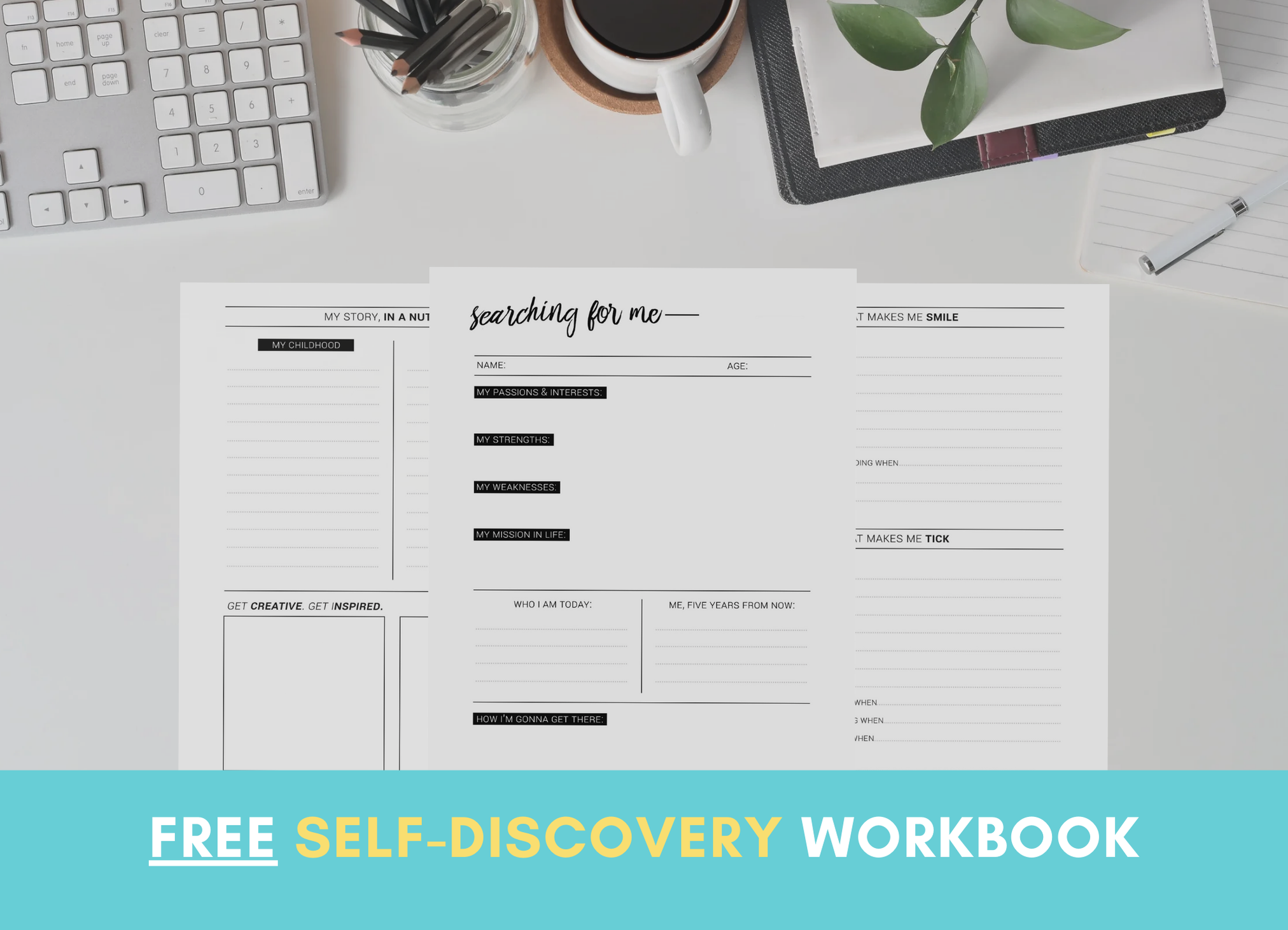
DOWNLOAD FREE WORKBOOK
Discover yourself & feel a little more secure in your identity with our Self Discovery Workbook.
How Do Borderlines Choose Their Favorite Person?
Borderlines do not choose their favorite person. It’s something that happens subconsciously and is often not something a person with BPD can control or stop (without proper treatment). Usually, a favorite person is someone that the person with BPD respects a great deal. They may find them physically attractive, intriguing, compassionate or view them as someone they’d like to be like one day. Often, the new favorite person has traits that the person with BPD feels they themselves lack. This makes them put the favorite person on a pedestal and idealize them.
Idealizing thoughts about a BPD favorite person could look like…
- “They’re everything I want to be, and more.”
- “They’re perfect in every way.”
- “I wish I could be like them.”
- “They’re the best thing that’s ever happened to me.”
- “I don’t know who I’d be without them.”
(Read ‘A Guide to Favorite Person Relationships’)
What Happens When a Borderline Loses their Favorite Person?
It feels debilitating when a borderline loses their favorite person. Internally, they may panic and experience both emotional and physical distress. They may feel chronically empty, numb or like a part of them has been removed. They may have suicidal ideation.
If they’ve been actively treating their BPD, they may experience regressions in their treatment (short or long term, big or small – depending on their mental state and their stage / length of recovery) or they may better cope with the loss overall.
Do Borderlines Regret Pushing People Away?
Yes, to understand BPD you should know that pwBPD are not devoid of feelings or emotional empathy. They absolutely can feel regret over pushing people away, and often do when they’re experiencing a BPD shame spiral (which typically happens at the end of or after a BPD episode). This regret can make them come back and try to make amends; it’s partly why people with BPD often oscillate between pushing loved ones away and begging for them back. The fear of abandonment also magnifies the intensity of their feelings until it becomes a mix of regret, dread and longing for the person they pushed away.
What Happens if you Ignore Someone with BPD?
Being ignored can easily trigger a person with BPD’s fear of abandonment and may cause them to split on you or themselves. If you’re close to the person with BPD and they feel comfortable expressing their feelings to you – they may react to this trigger outwardly by continuously reaching out. They may ask if they did something wrong or lash out at you. If they don’t feel comfortable expressing their feelings to you or if they have a quiet BPD subtype – the response can be much more subtle. They may repeatedly check their phone for a response or they may check your social media to see if you’ve been online. They may wonder what went wrong or ruminate on your interactions with them.
It feels like torture for a person with BPD to be ignored by someone they love, care about and value. Ghosting someone with borderline personality disorder is cruel. Your best bet, if you don’t want to or can’t maintain contact (for your own mental health or if they’re abusing you), is to be up front about it. Of course, if they’ve been abusive – you should be up front at a safe distance (via text or handwritten letter) or with a support person in a public place or with a police escort (if you’re moving things out of a shared home). Then block them afterwards so they can’t contact you.
Understand BPD: How do Borderlines React to No Contact?
The first and only time a person went No Contact with me was in my freshman year of high school. It was from my first boyfriend, who was also my favorite person at the time. After we broke up, he stopped speaking with me. I did not handle it well. I called him relentlessly. Eventually he stopped answering and I gave up trying. I wrote him love letters I never sent, speaking on all of the good times and our “love” (admittedly, I didn’t know how to love at 14 – so I use the term loosely today). I hacked into his Myspace account and deleted the custom theme I’d designed and coded for him. I listened to sad music, isolated myself and trash talked him to anyone who would listen – even though, deep down, I knew he had done nothing wrong and it was all just a defense mechanism. I was hospitalized twice. I cut a lot and became suicidal. Thankfully, he went to a different school than me and I was able to get over him after a year or so. We were a couple for one year, which is a lifetime to a 13-14 year old girl. I was convinced I would never love again.
Other times, also when I was younger, I got into fights with my friends and we naturally phased each other out of our lives. While I didn’t react as strongly with them as I did with my first breakup, those instances still hurt deeply. I would ruminate on the fall outs, daydream about seeing them again, constantly switch (in my head) between playing the victim & harping on my own actions that led to the fallout. I would also obsessively stalk their social media until I eventually got over it. It usually took a couple of months, sometimes longer if we were really close.
No Contact can trigger a person with BPD’s fear of abandonment. It can cause them to switch between lashing out & raging to crying & begging – often a result of BPD splitting. Keep in mind, if they have a more quiet subtype of BPD, they may not show these intense mood swings to you directly. They may experience everything inwardly and seem totally fine to the outside world. They may become suicidal or self-destructive. They may need to be hospitalized. They may hoover you in a similar way as someone with narcissistic tendencies will (meaning they’ll reach out or find alternative ways of contacting you if they’re blocked), although the motivations behind this behavior tend to differ than that of someone with narcissistic tendencies.
(Read ‘Differences Between BPD & NPD’ on Choosing Therapy)
However, none of that means you shouldn’t go No Contact if the person with BPD is abusive towards you or is in other ways affecting your mental health. Sometimes No Contact is the best thing to do for yourself and even for the person with BPD (abandonment can sometimes push some people with BPD to seek help). Stick by your boundaries and block all forms of communication. If the person with BPD makes suicidal threats after you go No Contact, call the police to have them to do a well check or reach out to their parent or a teacher if you are minors. As sad as it is, it’s not your job to save them from BPD.
What Not to Say to Someone with BPD?
To better understand BPD and know what not to say to someone with BPD, you should first know common BPD triggers.
(Read ‘What Causes a BPD Episode & BPD Triggers’)
Generally – anything said that would invalidate someone is something to avoid if you’re looking to de-escalate a BPD episode or support a loved one with the condition.
Some specific, invalidating phrases that you should NOT say to someone with BPD are:
- “You’re fine.”
- “It’s not a big deal.”
- “I don’t see the problem.”
- “You’re overreacting.”
- “Get over it already.”
- “You’re blowing this out of proportion.”
- “Oh my God, you’re so dramatic.”
- “You’re crazy.”
- “You’re unstable.”
- “You always make a big deal of things.”
- “Why are you so intense?”
- “Just stop.”
- “I don’t know why you can’t just let it go.”
- “Calm down.”
- “Are you still on this?!”
- “You take things way too personally.”
- “Here you go again, freaking out for no reason.”
- “You’re so intense. Chill.”
- “This is just your BPD speaking.”
- “Stop already!”
Honestly, you shouldn’t say the above phrases to anyone. They’re dismissive, cruel and not productive. Continuously saying these types of phrases to someone is also abusive.
Do People with BPD Ever Admit They Are Wrong?
This depends on the person with BPD. I’ve met plenty of people with BPD who can admit when they’re wrong or have been wrong in the past – these people are often well into treatment, have a great level of self awareness and have healthier relationships with others as a result. I’ve also met people with BPD who are too wrapped up in their intense feelings to be anything but defensive when they’re called out for mistakes or wrongdoings. Unfortunately, the people in the ladder are often harder to maintain a relationship or friendship with; understandably so.
Being called out can be a trigger for a person with BPD’s fear of abandonment. To a person with BPD who isn’t in treatment or isn’t self aware, admitting they’re wrong or even sincerely apologizing can be like admitting there’s something fundamentally flawed with them. It triggers the intense BPD shame. Sadly, not being able to take accountable only perpetuates conflicts and problems in interpersonal relationships which compounds their shame. It’s a vicious cycle.
Understand BPD: Do Borderlines Know They Hurt You?
Most people with BPD are capable of emotional empathy (the ability to feel another person’s emotions) and in fact, people with BPD usually have too much emotional empathy – like with the rest of their emotions, they can feel empathy very intensely. This allows them to feel when they’ve hurt you, so the answer is generally yes – but it also depends.
The caveat is, people with BPD may lack cognitive empathy which is the ability to understand other people’s emotions. This can cause people with BPD to misinterpret your emotional reactions or be ignorant to your emotional experience. Not because they lack emotional empathy in the way a person with narcissistic personality disorder (NPD) does, but because they can misread the intentions or motivations behind your feelings.
Another caveat is, when their fear of abandonment is triggered – people with BPD may be so overwhelmed by their own intense emotions, that they neglect to think of others’ emotional experiences. So sometimes during BPD episodes, their empathy gets subdued or deprioritized. But later, it can return when their emotions settle down or when they’ve had enough time to process the situation. This is one reason BPD episodes can end with a lot of shame – there’s great shame in hurting the people we love and not being good enough for them.
There are a percentage of people with BPD who also meet criteria for NPD – which causes a lack of emotional empathy. When you’re dealing with a borderline narcissist, their ability to know or feel when they’ve hurt you is much less likely. Likewise, if you’re dealing with a person with BPD who isn’t self aware – there’s also a less likely chance they’ll be aware of the impact their behavior has on you, because they generally aren’t as aware of their own behavior.
(Read ‘Differences between BPD & NPD‘)
Like with most of these answers, it really all depends on the individual person with BPD whether they know they’ve hurt you or not.
Understand BPD: Do People with BPD Feel Real Love?
One thing to know when trying to understand BPD is that pwBPD are not devoid of empathy, So yes, because people with BPD typically have an abundance of emotional empathy – they can feel real love. They are capable of giving and receiving genuine love and in fact, like most of their emotions – they tend to feel love very intensely.
However, if a person with BPD is not actively working on their symptoms or if they aren’t self-aware, they may have trouble expressing their love in a healthy way and may even resort to abuse or manipulation (even if done unintentionally). This is usually due to their intense fear of abandonment and emotional dysregulation. Don’t get me wrong, though – this does not mean it’s OK for someone with BPD to abuse others. BPD is never an excuse to be abusive (I rarely use words like “always” or “never” nowadays, to prevent my own splitting thoughts, but in this case, it’s appropriate to do so).
Healthy love requires taking accountability, a willingness to grow and consistent follow-through. It takes time to improve BPD symptoms, but learning how to manage them is possible. Treatment can help people with BPD express their love in a more effective and non abusive way – if they decide to do the work themselves, that is.
Do People with BPD Really Love Their Favorite Person or Is It Just an Obsession?
Since people with BPD are capable of loving others – due to their emotional empathy, a person with BPD is able to genuinely love their favorite person. That doesn’t mean they don’t obsess though. They often do obsess over their favorite person, especially if they aren’t in treatment. It is possible for a pwBPD to feel and experience both love and obsession simultaneously. One thing to take into account, though, is BPD splitting.
When someone with BPD idealizes their favorite person, especially if they haven’t known them for long, they may not see their favorite person for who they really are. Instead – they may be seeing their favorite person as an untouchable, perfect force of nature. Placing someone on a pedestal and not realizing their very human flaws and quirks makes it harder to genuinely love them or love them in a healthy way; because genuine love requires acceptance. It’s like loving a celebrity – you may love their work, how they present themselves to the public but you can’t really love them or accept them for who they are because the celebrity is actually a complete stranger to you. You just don’t know enough about them. This likely isn’t the case for someone with BPD who’s been in a long term relationship with their favorite person or is past the “getting to know you” stage of the relationship. I’ve met people with BPD in relationships with their favorite person for many years (10-20+). Surely, those people with BPD may still obsess over or be anxiously attached to their FP but they also have a deep understanding and acceptance of who their favorite person actually is.
Like with most of these answers, it ultimately depends on the pwBPD. If you’ve been in a relationship with someone with borderline personality disorder and are out of the honeymoon period and getting to know you stage (which could last anywhere from 6 months to 2 years), it’s most likely your person with BPD knows you well and loves you very much – even if they split on you or can be obsessive at times. The same goes for favorite person relationships that are friendship or family based.
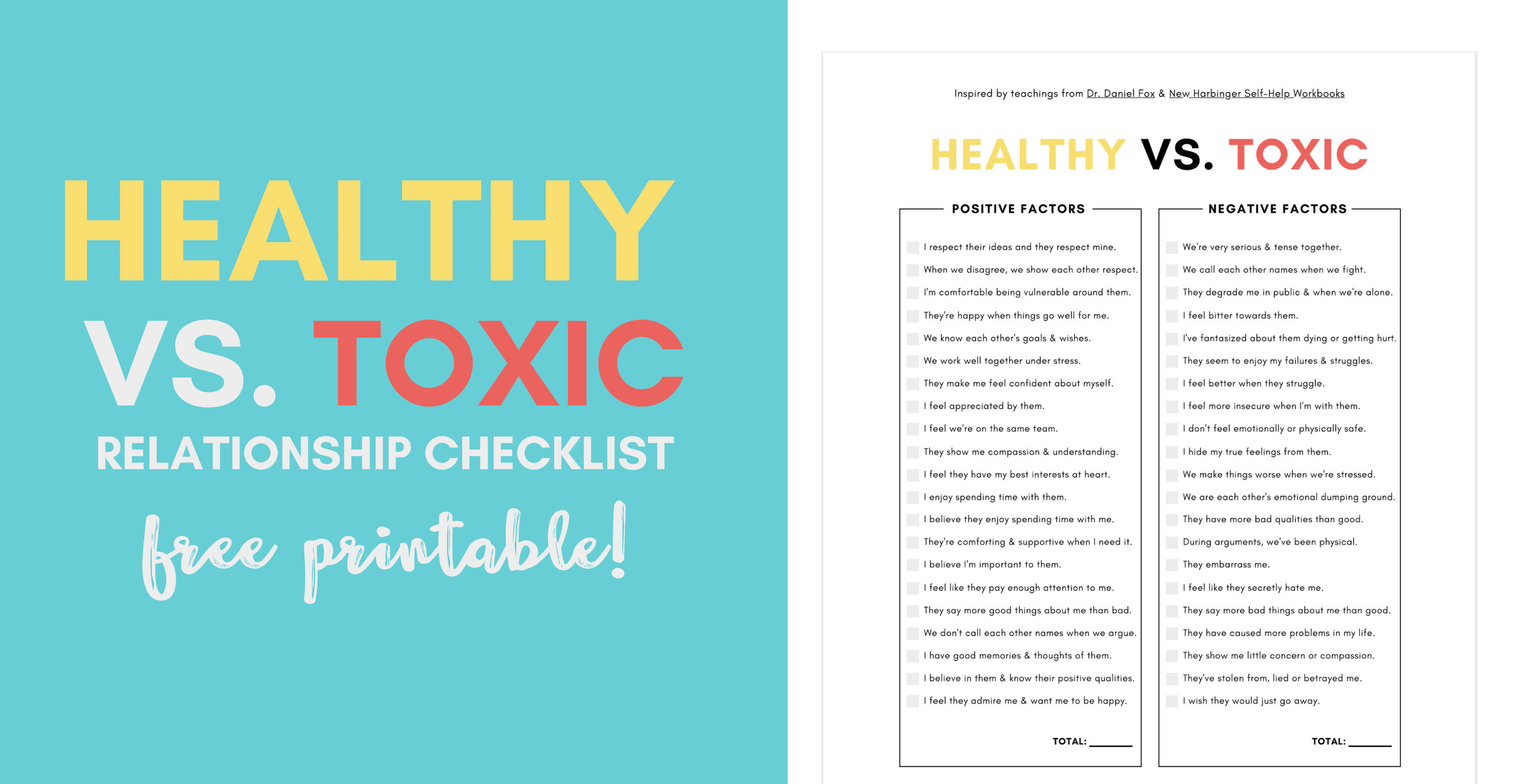
DOWNLOAD FREE PRINTABLE
Measure how healthy or unhealthy your BPD relationship is with the Healthy vs. Unhealthy Relationship Checklist.
Understand BPD: Does a Borderline Miss You?
Yes, a borderline can absolutely miss you. Most people with BPD have emotional empathy and are able to genuinely love, care for and miss their loved ones. Even if they devalue those they love while splitting or during a BPD episode, those devaluing thoughts and feelings are often temporary and short lived. Usually, once a BPD episode subsides – a person with BPD will feel a great deal of shame over the thoughts & feelings they had during the episode and will likely feel remorse for hurtful actions.
What Happens When You Say No to a Borderline?
Saying no to someone with borderline personality disorder can be triggering and result in a BPD episode, more so if they’re not in treatment. Knowing how to say no to someone with BPD in a way that doesn’t invalidate them or trigger their fear of abandonment is key – especially if your loved one isn’t treating their BPD. We have a blog post that outlines some steps you can take to make facing this common BPD trigger easier for loved ones, since BPD is NOT an excuse to ignore your boundaries or your own needs.
(Read ‘Saying No to Someone with Borderline Personality Disorder‘)
What is the Most Effective Treatment for Borderline Personality Disorder?
Dialectical behavior therapy (DBT) is one of the most recommended therapy options for BPD – it can be life changing and is what helped me and many others get into remission. However, it’s not the only option nor does it work for everyone with BPD. Alternatives to DBT include: transference focused psychotherapy (TFP), mentalization based therapy (MBT), schema focused therapy and systems training for emotional predictability and problem solving (STEPPS).
Is it Worth Dating Someone with BPD?
This depends on their commitment to their recovery, their interpersonal & communication skills, your overall compatibility and lastly – your own tolerance to stress and others’ emotional needs. People with BPD who are in treatment or in remission can actually make great partners – they tend to be fiercely loyal & protective of their loved ones and they can display a lot of emotional empathy & compassion.
Others with BPD may be better off staying single, at least until they’ve progressed more in their treatment or have a greater level of self awareness and control over their emotions.
Likewise, there are also people without BPD who should NOT date someone with borderline personality disorder: those with low levels of empathy or with lots of untreated narcissistic traits, or those who don’t take mental health seriously (i.e. people who “don’t believe” in depression or therapy), should avoid dating people with BPD. You won’t do them any favors by pursuing a relationship with them, and you’ll likely find yourself very unhappy as well.
(Read ‘The BPD & NPD Couple’)
Those who have high levels of anxiety &/or their own struggles with emotion regulation may also have a harder time coping in a relationship with a partner with BPD. In this case, individual therapy for both parties and possibly couples counseling to figure out ways to support each other may make things easier.
What is the Best Partner for Someone with BPD?
If you’re a laidback person who goes with the flow, has empathy & patience and can stay calm / supportive when someone is dealing with their own crisis – you may do well in a relationship with a borderline in treatment. It also helps tremendously to have your own healthy communication and emotion regulation skills. Knowing how to validate someone else’s emotions is also key to having a healthy BPD relationship.
(Read ‘Best Partner for Someone with BPD‘)
If your pwBPD is doing DBT, you should make it a goal to learn DBT skills as well – especially the skills found in the interpersonal effectiveness module. This way you can both utilize the skills together during conflict or disagreements.
(Read ‘DBT Interpersonal Effectiveness Skills’)
Do People with BPD Know Something is Wrong?
To help you understand BPD, you should know it runs on a spectrum. People with BPD can have varying levels of self awareness, so this ultimately depends. Since creating BPD Beautiful – I’ve met many people with BPD who are incredibly self aware, have an in depth understanding of their triggers and are able to hold themselves accountable and make significant progress in their recovery. However, I’ve also met people with BPD who were lower functioning and weren’t always aware of the impact their behavior had on others or even aware of the impact BPD had on them.
Others with BPD have comorbid NPD (also known as narcissistic personality disorder – another cluster B personality disorder) or other conditions, which can further cement this lower level of self awareness and contribute to an overall lack of accountability. At the end of the day, it’s important not to judge the BPD community as a whole or make sweeping generalizations. Everyone with BPD is different, regardless of having the same diagnosis. BPD does not define a person.
Understand BPD: Conclusion
I hope these 30 questions and answers have helped you better understand BPD and will make you a stronger support person for a pwBPD or a stronger advocate for yourself. It can be hard to understand BPD when you don’t have it yourself but reading up as much as possible can help a little. Just remember: you’ll never know exactly what it’s like. That’s why it’s helpful to keep an open mind.
BPD Resources
BPD Characters: Read the first 6 chapters of Sadie’s Favorite – an upcoming novel by Sarah Rose, creator of BPD Beautiful.
Get 20% off your first month of BetterHelp. Get matched with a licensed therapist within 48 hours. Subscriptions as low as $65/week, billed every 4 weeks. Cancel anytime.
Manage your BPD symptoms with a printable workbook.
See our recommended list of books about BPD.
Start a Discussion
If this post resonated with you or helped you to better understand BPD symptoms, please tell us about it in the comments.
Pin this Post
Liked this post? Please help support BPD Beautiful and spread borderline personality disorder awareness by pinning it to Pinterest.
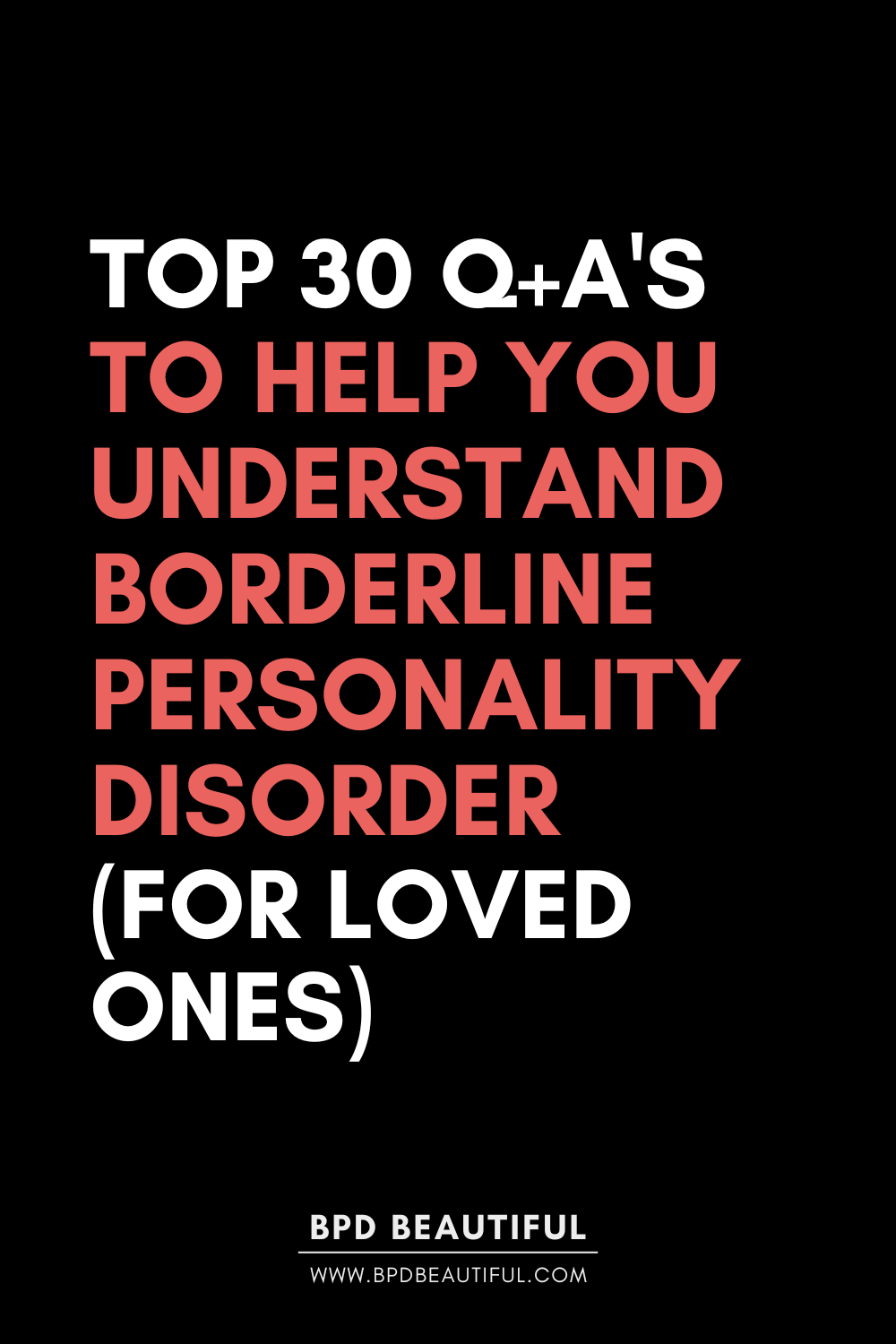

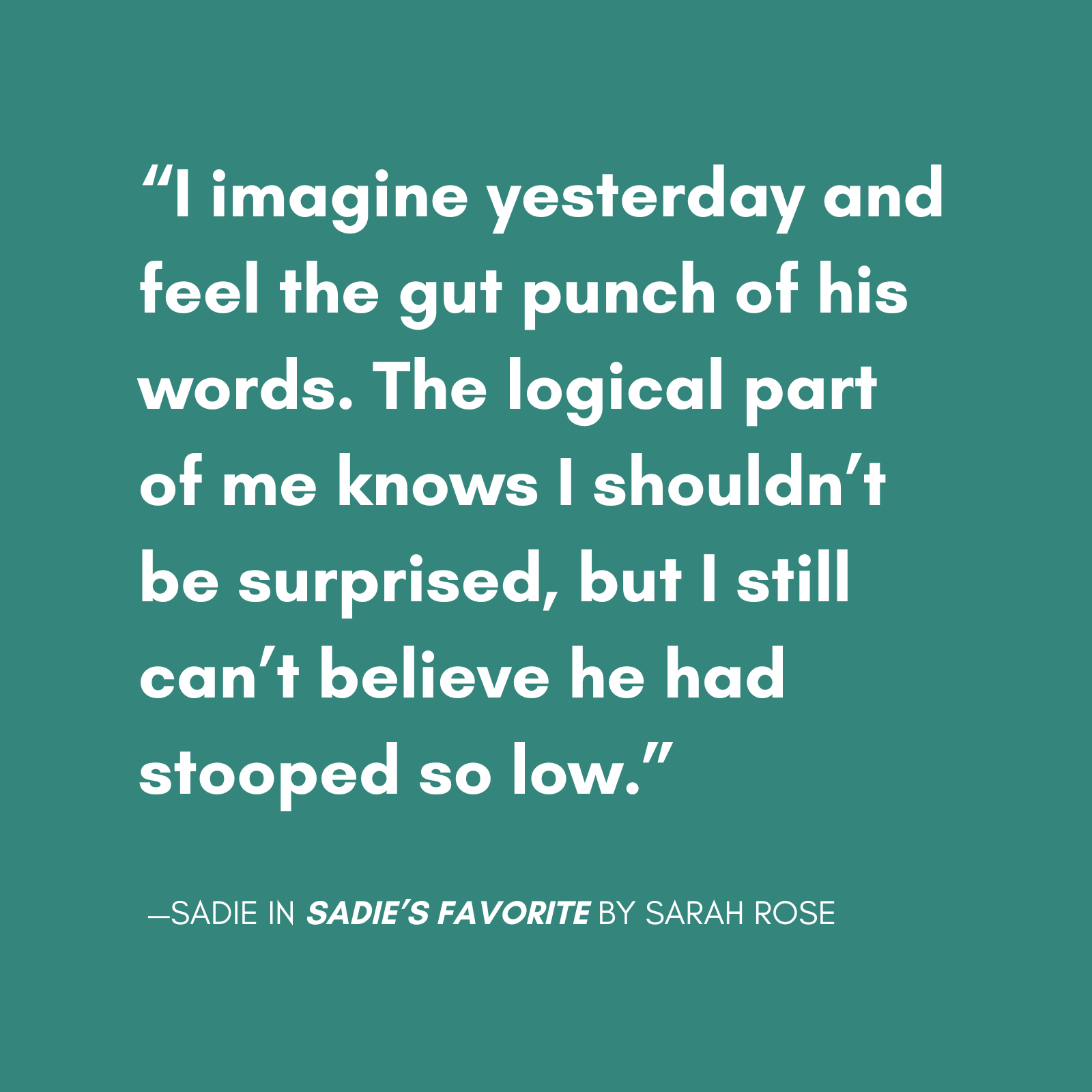
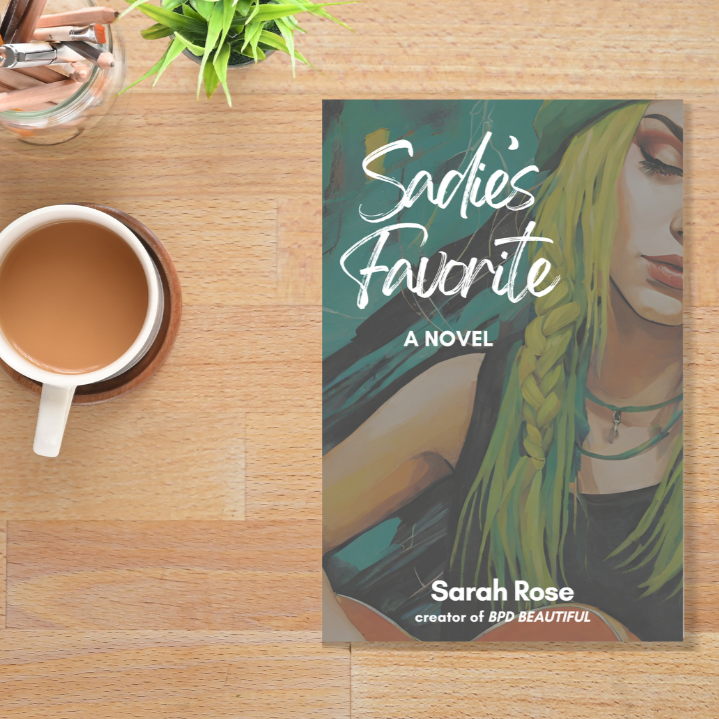
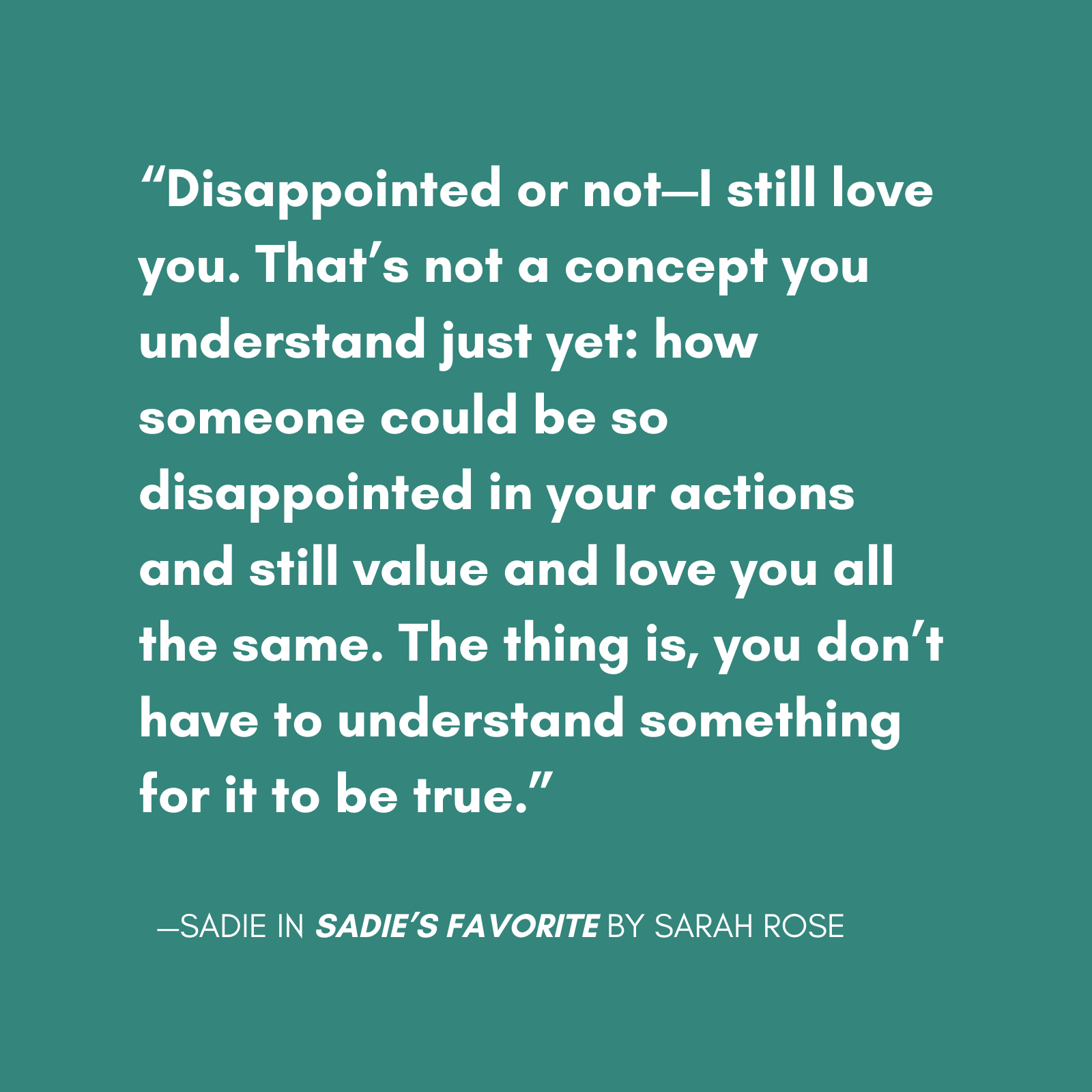

Comments
2 responses to “Top 30 Q+A’s To Help Loved Ones Understand BPD”